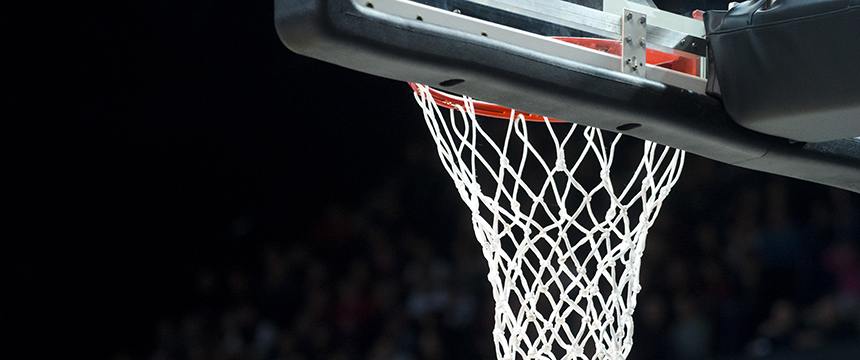Losing for Winning: Dartmouth Basketball Team’s Ill-Fated Unionization Effort

The Dartmouth men’s basketball team is scheduled to tip-off its 2024-25 NCAA season. Not surprisingly, they will do so without a labor contract, notwithstanding the team’s historic vote last March to unionize under federal labor law as “employees” of Dartmouth. Indeed, the team’s fight to form a union and negotiate a labor contract remains sidelined and, as recent (and potentially upcoming) developments reflect, is likely to remain so — indefinitely.
As we previously reported, with the National Labor Relations Board (NLRB) drawing up the plays, including a determination by the NLRB’s Regional Director that the players — by virtue of playing basketball for the school — are Dartmouth employees under federal labor law, the Dartmouth basketball team voted to unionize, and the NLRB certified Local 560 of the Service Employees International Union (SEIU) to represent the players in collective bargaining with Dartmouth over the terms and conditions of their “employment.” A win, for sure, but to what end?
Dartmouth’s position has been steadfast throughout: its basketball players are student-athletes participating in an extracurricular sport offered by the school and, consequently, are not school employees. Dartmouth undoubtedly takes pride in offering its basketball-playing students an opportunity to participate in NCAA Division 1 competition as part of their educational experience. Would it surprise anyone that Dartmouth would have zero interest in fielding a team and offering its students an opportunity to play Division 1 basketball if it had to pay those students wages to play for the school? At every turn, including in its active opposition to the team’s unionization at the NLRB, Dartmouth has quite clearly shown that it has no interest in playing this game, literally and figuratively.
Let’s count the ways:
- Immediately after the players voted for the union in March, Dartmouth filed with the full Board a request for review of the Regional Director’s determination that the team members are employees of the school under federal labor law.
- Dartmouth also immediately announced that it would refuse to bargain with the union, notwithstanding that, under federal labor law, employers are prohibited from refusing to bargain with a certified union in good faith over terms and conditions of employment for the subject workers.
- True to its word, Dartmouth declined the SEIU’s formal requests to bargain, and, in August, the SEIU filed an unfair labor practice charge against Dartmouth with the NLRB, citing the school’s alleged refusal to bargain.
- In September, Dartmouth formally answered the unfair labor practice charge. It did not deny refusing to bargain, but instead maintained its position that it had no legal obligation to do so, citing the legal infirmity of the Regional Director’s determination that the players are employees under federal law.
- Recently, the SEIU moved for summary judgment on the unfair labor practice charge, asserting that, given Dartmouth’s admitted refusal to bargain, there were no material issues of fact to be determined at an evidentiary hearing, and, consequently, the NLRB should summarily rule in the SEIU’s favor and issue an order directing Dartmouth to bargain with the union.
As the above reveals, seven months on from their historic union vote, the players’ unionization effort is stalled in a quagmire of NLRB process, with little prospect of resolution on the observable horizon. In the meantime, Dartmouth’s legal position against the Regional Director’s determination of employee status may have been enhanced by the U.S. Supreme Court’s recent decision in Loper Bright Enterprises v. Raimondo, in which the Court overturned long-standing precedent and held that courts were not required to defer to a federal agency’s reasonable interpretation of an ambiguous law but must instead “exercise their independent judgment in deciding whether [the] agency has acted within its statutory authority.”
In other words, if and when a federal court reviews the NLRB’s determination that the Dartmouth basketball players are school employees, the court will not be required to defer to the NLRB’s interpretation of the National Relations Labor Act’s hopelessly ambiguous definition of employees (“the term ‘employee’ shall include any employee”). In its answer to the SEIU’s unfair labor practice charge, Dartmouth teed up this new legal argument and cited Loper Bright in challenging the Regional Director’s decision on employee status.
In practical terms, Dartmouth’s strategic approach in this case has been an effective combination of a four corners stall, delaying and avoiding any practical impact of the union vote, and an acceleration of the NLRB process for purposes of getting the employment question more quickly into the federal courts, a potentially more favorable forum. Indeed, if the NLRB grants summary judgment to the SEIU and dispenses with a hearing on the unfair labor practice charge, federal court review of any bargaining order could come sooner rather than later.
In the meantime, strategic considerations for both sides must include the now-imminent U.S. Election Day, which will take place the day before Dartmouth basketball’s first game of the 2024-25 season. A win for Donald Trump could change everything. If past is prologue, a Trump-controlled NLRB will once again curtail a Democratic administration’s arguably overactive efforts to establish student-athletes as employees of the schools for which they play their sport, which is precisely what happened after Trump’s win in 2016. In a Harris presidency, the current case would likely continue to slog forward.
So what’s next for the Dartmouth men’s basketball team? Perhaps a self-defeating strike in support of the SEIU’s unfair labor practice charge (and a forfeiture of games)? There appears no path to ultimate victory for the team, despite winning the union vote. Indeed, the Dartmouth men’s basketball team likely has a better chance of winning an NCAA championship than ever playing basketball as Dartmouth employees under a negotiated collective bargaining agreement. Either a Trump administration will crush the movement, or, even in the event of a final legal determination that the players are employees of the school, Dartmouth would likely either (i) shutter its Division 1 basketball program or (ii) reset the program’s requirements to ensure that playing basketball did not qualify as employment under any applicable legal standards (see, e.g., collegiate club sports). It seems obvious that, absent economic incentives to act otherwise (which do not likely exist with respect to Ivy League basketball), Dartmouth — and likely many other schools — would not offer certain sports programs (or at least such sports at the same competitive level) if they are ever required to treat the student participants as employees and pay them wages.
